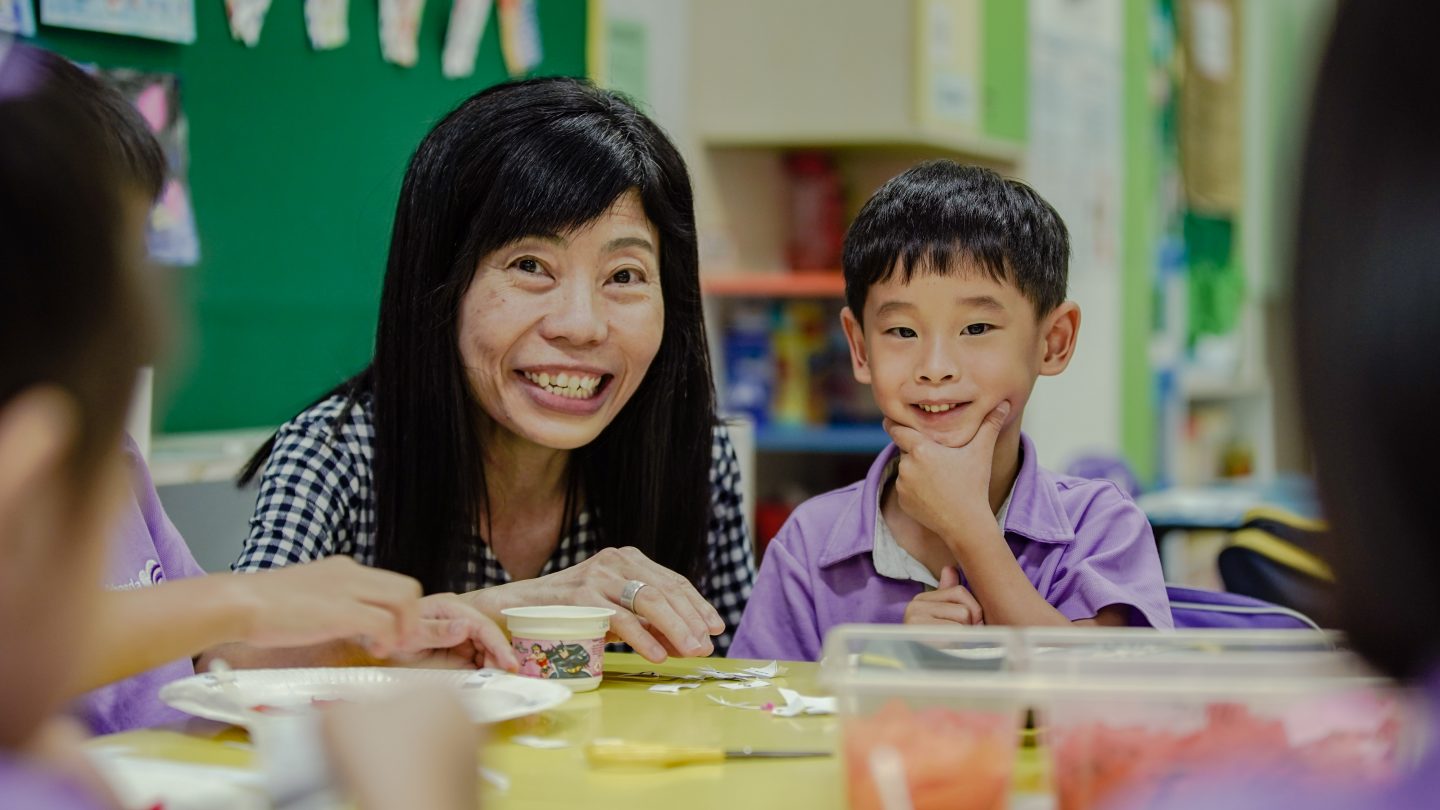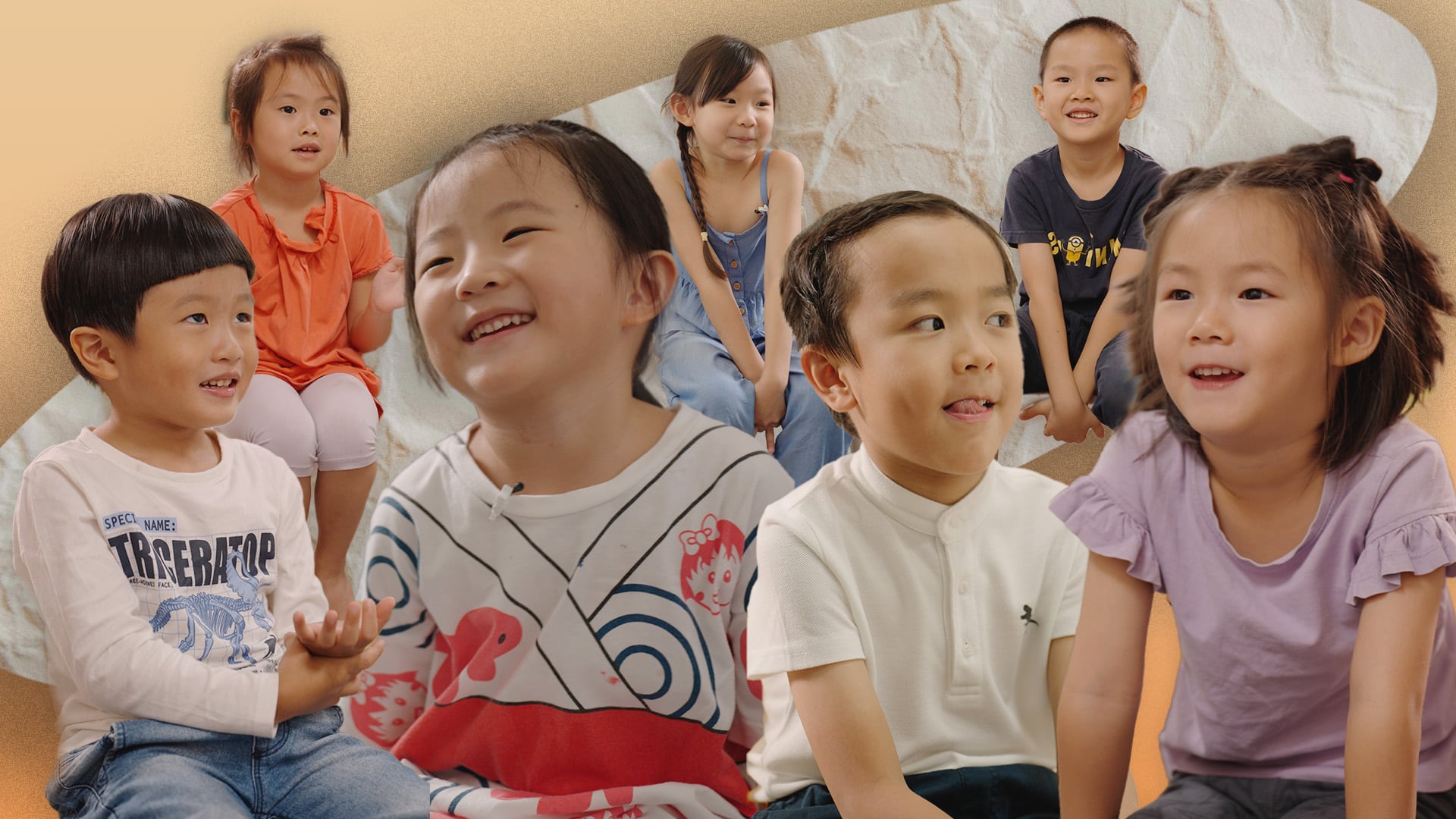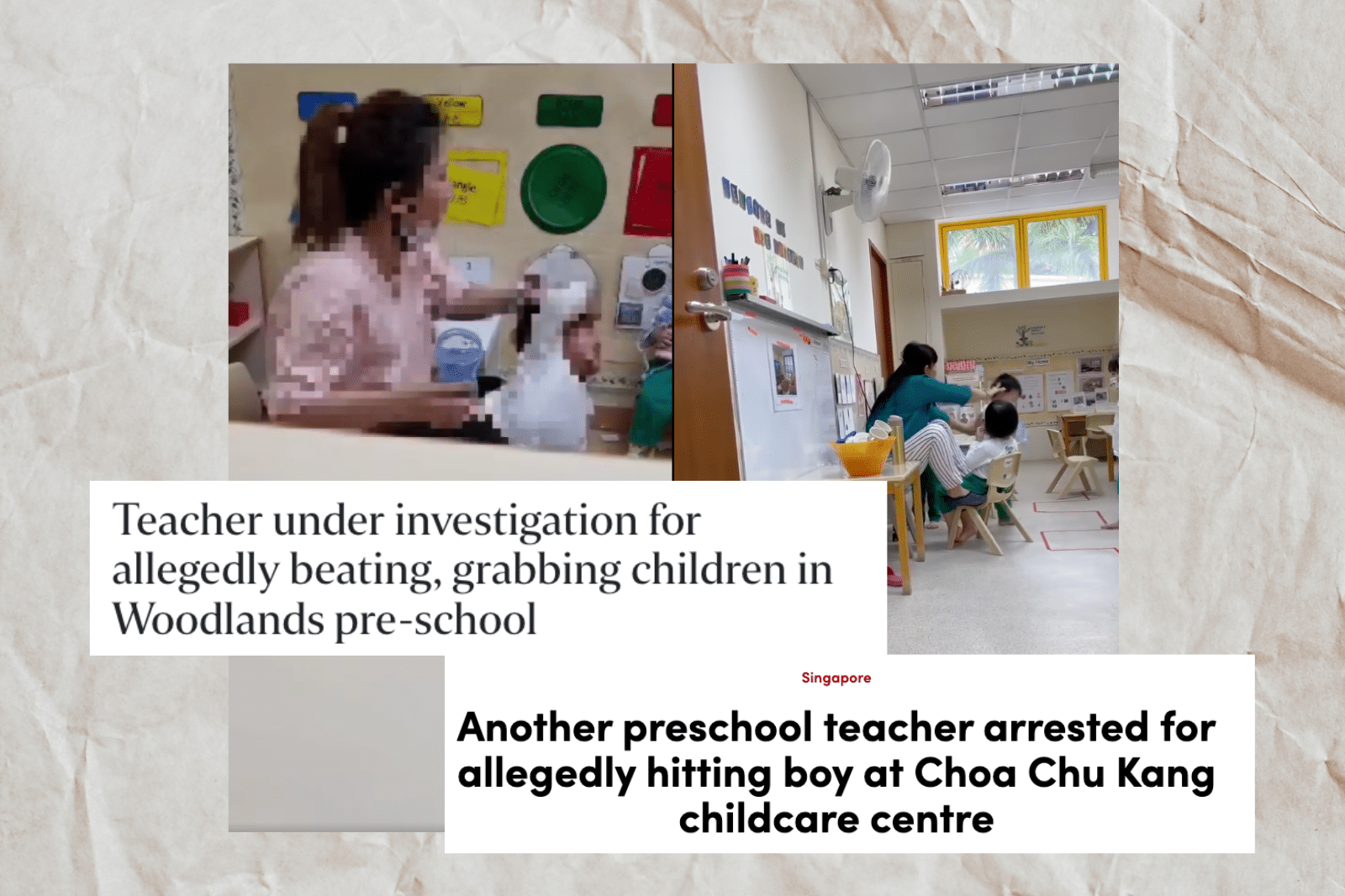“God can help our children where grades cannot”: 4 reasons church pre-schools are uniquely placed to sow into eternity
Leong Sook Ting // April 20, 2023, 7:12 pm

Chels Tan, principal of Bethesda (Bedok-Tampines) Kindergarten, with Ethan Ong, then 5, whose mother saw positive changes in him after switching to the church preschool. Photo by Ang Wei Ming.
Have you heard about the 4-14 window? According to Child Evangelism Fellowship, that is the age that people are most likely to accept Christ as their personal Lord and Saviour.
This means that the earliest opportunity for a child to come to faith is in their pivotal pre-school years.
Almost four years after it was reported that falling pre-school enrolment and competition from large operators might sound the death knell of church pre-schools, some have since pooled resources and banded together in a bid to keep church pre-schools sinking in the sea of competition.
Salt&Light talks to parents and educators to find out what makes church pre-schools a worthwhile consideration for parents looking to start their little ones with a Christ-centred foundation that could make a difference for the rest of their lives.
Christian pre-schools:
1. Sow seeds of simple faith
Jesus exhorted the little children to come to Him (Matthew 19:14), and told us to have child-like faith (Mark 10:15).
“Children have a special place in God’s heart because of the simplicity of their spirit. That’s the kind of faith that God wants us, His children, to have,” said Cara Lee, 37, deputy pillar head of the early childhood development centres at Anglican Preschool Services.
One of the ways Cara sees young children’s faith in action every day is: “If you tell them that ‘Jesus loves you’, they just sing the song with gusto and they believe that ‘Jesus loves you’, and they will go and tell other people!”

Cara Lee of Anglican Preschool Services, believes that planting the seed of faith early in children will make a big difference later in life. Photo courtesy of Anglican Preschool Services.
The growth of a child in that precious pre-school age window can be astounding.
“The work is a form of worship.”
“It was in the pre-school space that I could actually see the children growing. I could see a lot of fruit, a lot of developmental changes in the early years,” she said.
“At this stage, nothing is set in stone. Everything can change for the better. I thought: If there’s any time to plant a seed, it is now. If you do things right for the kids in the early years, it will make a big difference.”
Pastor Felicia Goh-Ong, 39, from Bethesda (Bedok-Tampines) Church, a mother of four, recounted similar advice coming from her mentors, who told her: “With faith, your kids have everything. Make sure you get that into them, because God can help them where grades cannot.”
That’s why, to her, academics while important is not as important as “sowing the seeds of faith”.
2. Have teachers guided by a Kingdom-mindset
Teaching pre-schoolers is more than a job; it is a calling.
“When it’s a calling, there is a spiritual aspect in the work. The work is a form of worship.”
“When it’s a calling, there is a spiritual aspect in the work. The work is a form of worship,” Cara said.
“I just know I have a sacred responsibility, that the words that I speak have power. The decisions I make have power.”
“Like-minded Christian teachers who see the kindergarten as their mission field are very intentional,” Hannah Ong, former principal of the Zion Kindergarten in Serangoon Gardens, shared with Salt&Light in a previous interview. “It’s not so much a transaction. How they carry out lessons, it’s a very different vibe. It’s a lot of love. The way they love the children, you really feel God’s love.”
For pre-school teachers like Iris Tan (retired) and Theresa Pereira of Faith Kindergarten, their work goes beyond teaching the ABC’s or 123’s. To them, the biggest joy and reward is knowing that their charges are “walking in the Lord” when they grow up, although it’s not often they know the result of their sowing.

Liaw Chun Huan (left) celebrates with Theresa Pereira, his former kindergarten teacher, as she received a long service award from Bishop Chong Chin Chung. Photo courtesy of Liaw Chun Huan.
“Education is good but the most important thing is that they walk in the Lord, because when you’re in the Lord, everything will be covered and you’ll do everything right,” said Theresa emphatically.
“Chairman, I’m so touched you’re saved.”
Liaw Chun Huan, Board member of Methodist Pre-school Services and former Chairman of Faith Kindergarten, was a self-described “terror and very talkative” when he was a student in Theresa’s Faith Kindergarten class in 1976.
He recounted to Salt&Light how they met again as adults and realised that they were former teacher and student.
The first thing Theresa said to Chun Huan was: “Chairman, I’m so touched you’re saved.”
Theresa has a habit of praying for her students, especially the “active” ones.
Said Chun Huan: “’I was very moved to know that she had been praying for me and that I’m an answer to her prayer.”
3. Shape a child’s worldview
Teachers make all the difference, Hannah noted, because these are formative years where children start to understand themselves and the world.
“With faith, your kids have everything, because God can help them where grades cannot.”
“They are very easily influenced,” said Hannah, adding that what a teacher or role model does is often taken as the gold standard, because of the close bond between the teacher and student that leads to trust.
According to Hannah, the ideas of the child in relation to God, and in relation to his or her friends and the world, are usually taught in a church pre-school.
“You can equip the child at home, but to practise what they’ve learnt, you need the school’s partnership, too. Home and school are very different settings. Even if parents intentionally disciple their children at home, spend time doing devotions or read the Bible together, school is a crucial part of the equation.
“It is a chance to impact their minds and hearts. And Sunday school is not enough.”
4. Impart Biblical values in everyday life
School is where the child learns to make sense of how to survive in the world while upholding Christian practices and values, added Hannah.
“Parents must have in mind that they are preparing the child not just for primary school, but for eternity.”
“In a world of shifting values and morals, creating a strong moral foundation based on Christian values is essential. Christian parents must have in mind that they are preparing the child not just for primary school, but for eternity,” she said.
The Christian Preschool Alliance shared that Chinese New Year (CNY) is an example of a good opportunity to guard children against having a materialistic and self-entitled mindset.
At Bethesda (Depot Walk) Kindergarten, children were led to make a paper orange ornament with leaves that carried words of thanksgiving. The children were asked to name the things they were grateful for.
It was a way to remember that CNY is a time to celebrate their blessings, not just of material things, but also of the natural world and of friends and family.

Children of Bethesda (Depot Walk) Kindergarten, learning about the spirit of gratefulness, through paper orange ornaments they made. On the leaves are items they are grateful for. Photo courtesy of Christian Preschool Alliance.
At Ascension Kindergarten, besides returning the blessing of angbaos (red packets) with loving wishes of good health, success and happiness, pre-schoolers are taught to express CNY blessings by honouring their parents, being thankful and respectful, just as God has commanded us specifically to honour our father and mother (Ephesians 6:2) and to love one another as He has loved us. (John 13:34)
“In a world of shifting values and morals, creating a strong moral foundation based on Christian values is essential.”
In community life, the children are taught to be aware of those beyond their immediate families, and to acknowledge and address other elders respectfully.
These elders include the aunties (domestic helpers) who care for them at home, and the cooks and cleaners at their kindergarten.
Children are also taught how kindness – an abstract concept – looks, sounds and feels like in different settings.
Teachers share, for instance, that children can be kind by doing good without expecting a reward – like helping Mummy by packing their own books and toys. They can also be polite by playing well with each other in school and with siblings at home.
Even doing small chores, such as folding clothes or taking their dishes to the sink, builds character and relationship with others.
So what makes a good kindergarten?
When selecting a kindergarten, Ps Felicia looks out for four things, in order of importance:
1. Spiritual environment and climate;
2. Teachers and their commitment;
3. Principal/Person in charge;
4. Physical premises, location and accessibility.
“Affirming pastoral environments are great for nurturing children because the spiritual covering and grounding is there.”
“Look at the environment and interactions and see whether the teachers are happy,” added Hannah.
“If the teachers are happy, the kids will be happy. At the end of the day, I look for the warmth in the teachers, the way they interact with my child and whether they are genuinely interested in my kids.”
“The most important thing for me is the spiritual climate of the kindergarten,” Ps Felicia said, adding that attractiveness of the location matters less to her now than it used to.
“Affirming pastoral environments are great for nurturing children because the spiritual covering and grounding is there.
“This is their introduction to education in Singapore and if it starts badly, it’s not great for the rest of their learning experience.”
Resources for finding a church pre-school
- Kingdomgarten Preschool Services
- Methodist Preschool Services Pte Ltd (MPS)
- Anglican Preschool Services
- Presbyterian Preschool Services (PPS)
- Bethesda Bedok-Tampines Kindergarten
- Clementi Woods Kindergarten
RELATED STORIES:
Three denominations uniting to save Christian preschool education in Singapore
We are an independent, non-profit organisation that relies on the generosity of our readers, such as yourself, to continue serving the kingdom. Every dollar donated goes directly back into our editorial coverage.
Would you consider partnering with us in our kingdom work by supporting us financially, either as a one-off donation, or a recurring pledge?
Support Salt&Light




